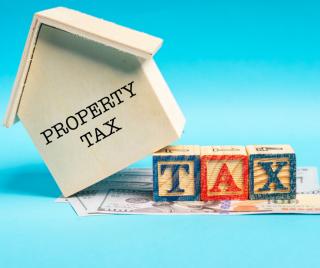A Brief Explanation of Why Your Taxes Go Up or Down

A Brief Explanation of Why Your Taxes Go Up or Down
Grand List – Inventory of all taxable property (and exempt property) in your town. It is how a town generates revenue to run the town. It is what your overall tax rate is base on. A town also receives federal and state grants, receipts from licenses and fees, as part of its total income. The property tax rate is the rate that when multiplied by the assessed value of all taxable property, will produce the revenue needed to balance the budget. GENERALLY, IF THE GRAND LIST IN YOUR TOWN INCREASES, THE WILL RATE WILL PROBABLY GO DOWN BECAUSE THERE IS MORE REVENUE COMING INTO THE TOWN COFFERS. IF THE GRAND LIST DECREASES, THE MILL RATE WILL GO UP.
Mill Rate – Is how your property tax rate is expressed in Connecticut. For example, a tax rate of 25 mills means that you pay $25 for each $1,000 of your taxable property’s assessed value. You obtain your total property tax by multiplying your net assessed value by the mill rate. For example if your home has an assessed value of $100,000 (this figure would be 70% of the fair market value), your tax would be 100 times 25 mills = $2,500.
Assessed Value – All property is assessed at 70% of its fair market value and this value is what you will be taxed on.
Revaluation – To be done every 5 years. It is the process of determining what the Fair Market Value is for all properties in your town. Again, your taxes on these properties will be based on the Assessed Value which is 70% of the Fair Market Value.
How a mill rate is determined – The Board of Finance meets to determine what the new budget figure is and will include all town salaries, the school budget, any equipment and other purchases needed, etc. Then all other revenues such as federal and state grants are deducted, leaving the amount that needs to be raised by taxes if there is a deficit. Your mill rate is determined from this amount.
After a revaluation, the assessed value of your property (house and land) may rise. However, that does not mean you will be paying higher taxes. Remember, the tax you pay will be based on the mill rate, and if the assessed values in your town rise, the Grand List will rise and your mill rate will most likely go down. This means you may be paying the same in taxes even though the assessed property value of your home has increased.

